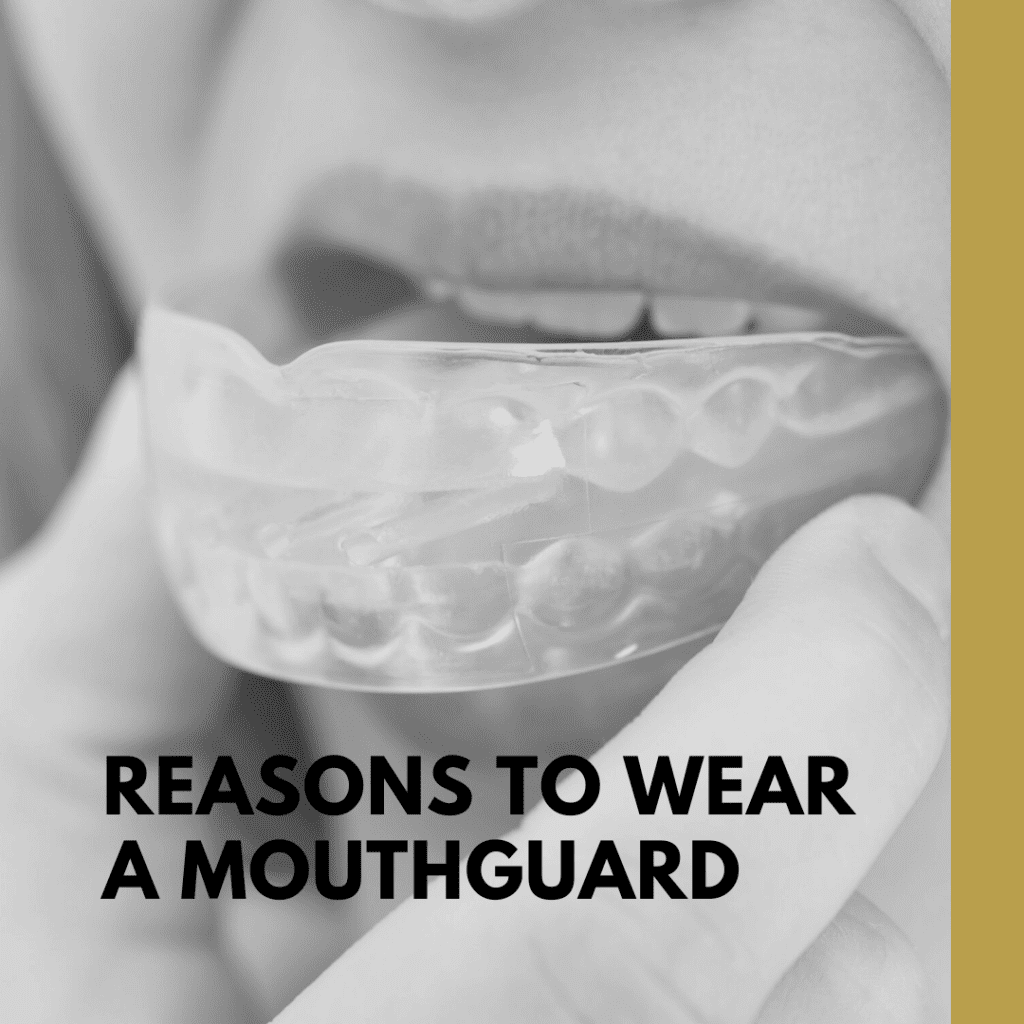Mouthguards are dental appliances that can be used as a protective measure to prevent the teeth from becoming damaged. Mouthguards come in different sizes and shapes, so it is important to find the one that will work for you. The best mouthguard should fit your teeth and gums snugly without feeling too tight or uncomfortable. You will also need to consider what type of protection your teeth require. While there are many types of mouthguards, many people tend to primarily use sports mouthguards and/or nightguards.
Sports Mouthguards
Sports mouthguards safeguard all or most of the teeth from sports-related facial injuries. Some sports mouthguards are designed to fit only over the top teeth, since these teeth stick out farther and are more likely to become injured. Other types of sports mouthguards are made to fit over both upper and lower teeth, depending on the type of sport being played. Some reasons to wear a sports mouthguard include:

Protect your teeth from damage
A blow to the face might easily result in a fractured or chipped tooth while participating in sports. Not only is this painful, but it can also cause a range of dental problems down the road. For example, damaged teeth are more likely to be affected by decay-causing bacteria since they are weaker. When you wear a mouthguard, the mouthguard absorbs the force of the blow rather than your teeth. Although your teeth may still be sore, they are less likely to fracture or chip.
Prevent tooth loss or intrusion
It’s possible that a hard hit to the face may cause your teeth to chip or crack. It is also feasible that it causes the teeth to become loose or knocked out. Not only can teeth be knocked out of place, but the opposite can also happen. This is known as intrusion and it is characterized by a tooth that gets jammed into the jawbone. Ouch.
Protects soft tissues
Your gums and lips can also become injured while playing sports, especially if you wear braces. To prevent soft tissue injuries, there are certain mouthguards that fit over the teeth and gums. There are also mouthguards that can be used over braces to protect the lips, as well as the braces themselves.
Reduced risk of injuring others
Not only does wearing a mouthguard protect you from getting hurt while playing sports, but it can also protect your teammates and/or opponent. Teeth are made for biting and chewing, so they are naturally sharp and can easily cut someone. However, mouthguards cover the teeth so that they cannot hurt another person.
Nightguards
A dental nightguard protects the teeth during sleep. The nightguard fits over the upper and/or lower teeth, just like a mouthguard for sports. Nightguards are often worn by people who grind their teeth at night. A dental nightguard should be worn for the following reasons:
Protect the Teeth

Nightguards are worn to protect against tooth crushing and rubbing that can occur when teeth grind at night. The grinding of the teeth requires an increased level of force which can lead to the wearing down of the enamel, cracking and breakage. Night-time jaw clenching can also damage or loosen existing fillings and crowns. Wearing a nightguard covers your teeth with a soft plastic material so that the risk of damage is significantly decreased.
Prevent TMD
Temporomandibular joint disorder, also known as TMD, is a condition that affects the jaw muscles and joints. The condition causes pain in these areas which can lead to problems with sleeping or eating if left untreated. Your dentist may recommend wearing a nightguard to prevent TMD since teeth grinding and clenching is a main contributing factor of TMD. Certain nightguards are actually able to position the jaw in such a way that limits bruxism and allows the jaw muscles to relax.
Alleviate Snoring
Snoring is caused by an obstructed airway. This occurs when the soft tissues in your throat collapse and vibrate as you breathe, which can be loud enough to disturb others. Wearing a nightguard helps keep the jaw forward so that breathing doesn’t become restricted. This can also help people who have obstructive sleep apnea.
Overall, wearing a mouthguard is important for several reasons. Depending on your individual needs, a sports mouthguard or nightguard may be recommended by your dentist. In some cases, both may be needed.



